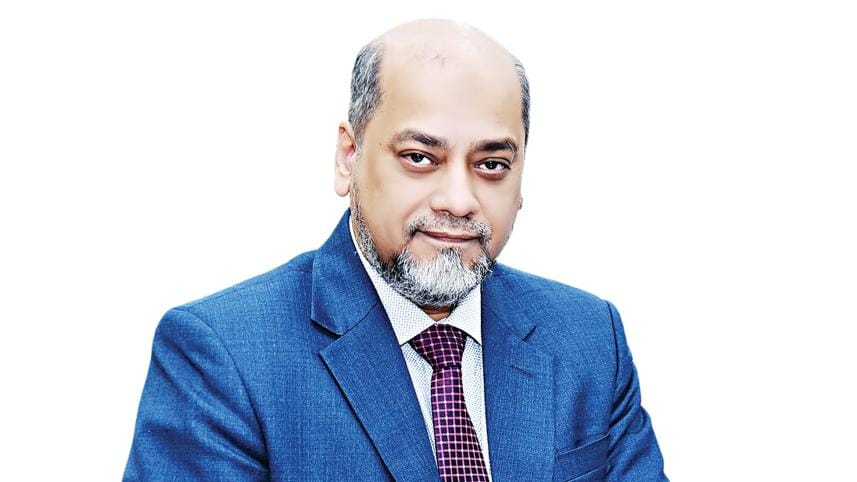Sustainable Finance, Accessible to Everyone

Mohammad Ali
Managing Director and CEO of Pubali Bank
The Daily Star (TDS): How would you assess the current state of sustainable banking in Bangladesh?
Mohammad Ali (MA): I believe the sustainability rating system has been both beneficial and important for banks as well as for the country. It also builds a strong image among stakeholders. Foreign partners who finance us also want to see whether we rank well in sustainability ratings. Many investors interested in green finance — such as green buildings or green factories — feel reassured when they see that we meet sustainability standards. This shows that we are aligned with Bangladesh's green finance practices, making it easier to bring such relationships up to international standards.
TDS: What sustainable financing/refinancing schemes does your bank offer, particularly for SMEs, women entrepreneurs, or other environmentally responsible enterprises?
MA: Our sustainable and green finance is accessible to all. However, in our economic context, we want to work with women — that is the most important aspect. One positive development is that in almost every institution we see, if there are four directors, at least one is a woman. On average, this is happening more often. Sometimes, we may think these are not necessarily women entrepreneurs, but we are now seeing greater participation of women.
The reason is that after the first generation, the next generation — both sons and daughters — have stepped in. In many cases, wives have also begun active participation. I think this is a good sign.
In the case of SMEs, they too need to align more with green financing, because they operate all across Bangladesh. They work in clusters — where there are shoe factories, they are all together; where there is handicraft production, they are based there as well. So, if you can bring SMEs under green financing, you actually reach the marginal population. This concept of green and sustainability — whether it is energy saving, tree preservation, soil conservation, or reducing carbon emissions — plays a role everywhere.
Our sustainable finance involves a huge investment. I have seen that over 88% of investments under sustainable finance last year went to CMSME. We are reducing corporate loans.
TDS: What initiatives has your bank undertaken to promote sustainable banking, and what measures have you implemented to reduce your own carbon footprint?
MA: At present, we have actually insured the carbon aspect for all of our establishments. In other institutions, carbon management is not being carried out, but what we have done is appoint environmental scientists with relevant educational backgrounds, both at the head office and branch levels, so that they can perform this work.
Several other initiatives have also been taken, such as planting over 28,000 trees in the coastal belt. We planted 2,800 of those this year, and this effort is continuing. This year alone, in just three districts, we plan to plant 12,000 to 15,000 more trees. Through such initiatives, we are laying a foundation so that in five or six years, when these trees start absorbing carbon, they will serve their purpose.
TDS: What challenges has your bank encountered in adopting and promoting sustainable banking practices?
MA: The real major challenge was to spread the concept of green or sustainability among everyone, to bring about a change in mindset. Our current mindset is to wake up in the morning and think only about the customer's business. Alongside that business thinking, there is also the matter of excellence for us.
Now, if someone is doing branch banking and I tell them, "Go to your college or university and talk to the teachers to see if trees can be planted there," they might think, "Instead of focusing on my business, Sir is sending me to plant trees." But this change of mindset is extremely important. You cannot force people to do these good works; they must be motivated to do so willingly.
Our ultimate goal is to make Bangladesh "liveable," which is a critical concern. I often emphasise that if a sector is categorised as environmentally risky — whether moderately or highly — under Bangladesh Bank guidelines, international directives, or IFC standards such as BIR, we will not invest there. Our investments are directed only towards low-risk areas.
TDS: What are your bank's future plans to advance sustainable banking, and what support do you seek from the government?
MA: We hope to continue this programme every year. If every institution takes such an initiative — banks, and then our customers — if everyone tries to achieve net carbon zero by calculating how much carbon their organisation produces and how much they can offset, then we will see a significant improvement in the country's overall environmental condition.



 For all latest news, follow The Daily Star's Google News channel.
For all latest news, follow The Daily Star's Google News channel.
Comments